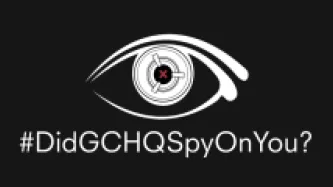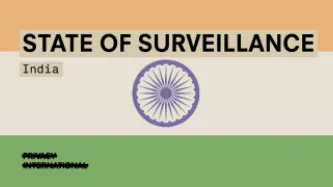Search
Content type: News & Analysis
As Amnesty International and Forbidden Stories continue to publish crucial information about the potential targets of NSO Group’s spyware, we know this much already: something needs to be done.
But what exactly needs to be done is less obvious. Even though this is not the first time that the world has learned about major abuses by the surveillance industry (indeed, it’s not even the first time this month), it’s difficult to know what needs to change.
So how can the proliferation and use of…
Content type: Long Read
The Grand Chamber of the European Court of Human Rights ruled that the UK government’s historical mass interception program violates the rights to privacy and freedom of expression. The Court held that the program “did not contain sufficient “end-to-end” safeguards to provide adequate and effective guarantees against arbitrariness and the risk of abuse.” As a result the Court ruled that UK law "did not meet the “quality of law” requirement and was therefore incapable of keeping the “…
Content type: Long Read
What’s the ruling all about?The Constitutional Court of South Africa in a historic judgment declared that bulk interception by the South African National Communications Centre is unlawful and invalid. Furthermore, the Constitutional Court found that the Regulation of Interception of Communications and Provision of Communication-Related Information Act (RICA) 1) was deficient in failing to provide at least a post-notification procedure for subjects of interception; 2) failed to ensure the…
Content type: Impact Case Study
What HappenedOn 5 June 2013, The Guardian published the first in a series of documents disclosed by Edward Snowden, a whistleblower who had worked with the NSA. The documents revealed wide-ranging mass surveillance programs conducted by the USA’s National Security Agency (NSA) and the UK’s Government Communications Headquarters (GCHQ), which capture the communications and data of hundreds of millions of people around the world. In addition to revealing the mass surveillance programs of the NSA…
Content type: Long Read
This piece was written by Ashley Gorski, who is an attorney at the American Civil Liberties Union, and PI legal officer Scarlet Kim and originally appeared in The Guardian here.
In recent weeks, the Hollywood film about Edward Snowden and the movement to pardon the NSA whistleblower have renewed worldwide attention on the scope and substance of government surveillance programs. In the United States, however, the debate has often been a narrow one, focused on the…
Content type: Long Read
This week, Privacy International, together with nine other international human rights NGOs, filed submissions with the European Court of Human Rights. Our case challenges the UK government’s bulk interception of internet traffic transiting fiber optic cables landing in the UK and its access to information similarly intercepted in bulk by the US government, which were revealed by the Snowden disclosures. To accompany our filing, we have produced two infographics to illustrate the…
Content type: News & Analysis
Thank you to those of you who joined our campaign, 'Did GCHQ Illegally Spy on You?'. If you made a claim to the Investigatory Powers Tribunal (IPT) - the court that hears claims about surveillance by public bodies, including the intelligence agencies - to find out if GCHQ has illegally obtained your communications, you will have probably received a letter or email from the IPT by now. We've written a 'Frequently Asked Questions' (FAQ) to help clarify what the ruling means and how you can now…
Content type: Long Read
Written by: Centre for Internet and Society
This guest piece was written by representatives of the Centre for Internet and Society (CIS). It does not necessarily reflect the views or position of Privacy International.
Introduction
As part of the State of the Surveillance project, CIS conducted a review of surveillance law, policy, projects, and trends in India. Below we provide a snap shot of key legal provisions governing surveillance in India and touch on…
Content type: Press release
Today’s report by the Joint Committee on the Investigatory Powers Bill is the third committee report that concludes that the Home Office has failed to provide a coherent surveillance framework.
The Joint Committee on the Investigatory Powers Bill today published a 198 page report following a short consultation period between November and January. Their key findings are that:
- the definitions in the bill need much work, including a meaningful and comprehensible…
Content type: News & Analysis
Internet Connection Records are a new form of communications data created by the Investigatory Powers Bill at Parts 3 and 4. They constitute an unlawful interference with privacy with the ability to provide a highly detailed record of the activities of individuals, profiling their internet habits.
Clause 62 of the Investigatory Powers Bill (“IP Bill”) permits a wide range of public authorities to collect Internet Connection Records, however throughout debates on this highly controversial new…
Content type: Press release
British intelligence services acted unlawfully in accessing millions of people’s personal communications collected by the NSA, the Investigatory Powers Tribunal ruled today. The decision marks the first time that the Tribunal, the only UK court empowered to oversee GHCQ, MI5 and MI6, has ever ruled against the intelligence and security services in its 15 year history.
The Tribunal declared that intelligence sharing between the United States and the…
Content type: Long Read
Privacy International filed formal complaints with the Organisation for Economic Cooperation and Development (OECD) in the UK against some of the world’s leading telecommunication companies, for providing assistance to British spy agency GCHQ in the mass interception of internet and telephone traffic passing through undersea fibre optic cables.
According to recent reports, BT, Verizon Enterprise, Vodafone Cable, Viatel, Level 3, and Interoute granted access to their fibre optic…








